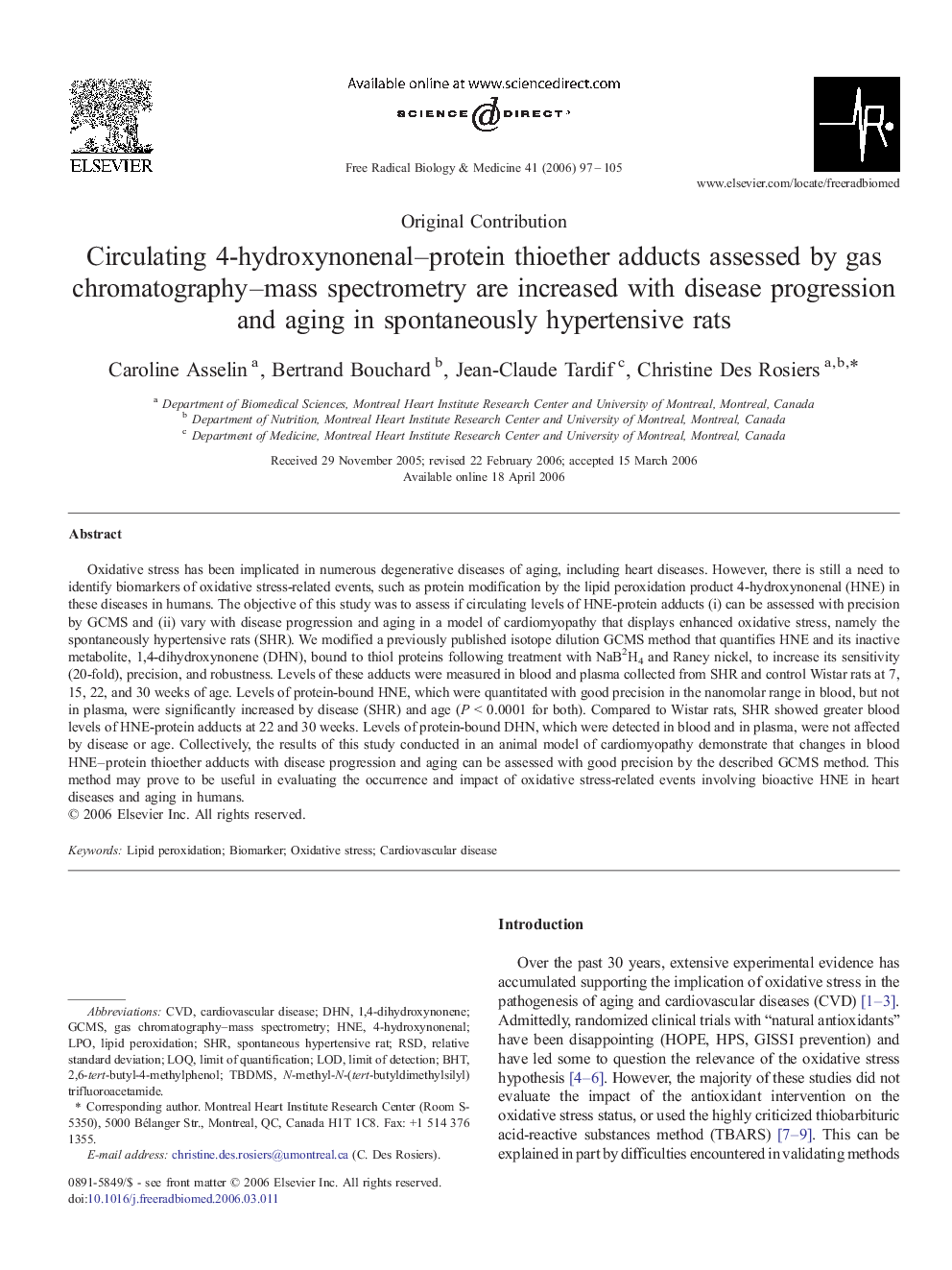| Article ID | Journal | Published Year | Pages | File Type |
|---|---|---|---|---|
| 1911898 | Free Radical Biology and Medicine | 2006 | 9 Pages |
Oxidative stress has been implicated in numerous degenerative diseases of aging, including heart diseases. However, there is still a need to identify biomarkers of oxidative stress-related events, such as protein modification by the lipid peroxidation product 4-hydroxynonenal (HNE) in these diseases in humans. The objective of this study was to assess if circulating levels of HNE-protein adducts (i) can be assessed with precision by GCMS and (ii) vary with disease progression and aging in a model of cardiomyopathy that displays enhanced oxidative stress, namely the spontaneously hypertensive rats (SHR). We modified a previously published isotope dilution GCMS method that quantifies HNE and its inactive metabolite, 1,4-dihydroxynonene (DHN), bound to thiol proteins following treatment with NaB2H4 and Raney nickel, to increase its sensitivity (20-fold), precision, and robustness. Levels of these adducts were measured in blood and plasma collected from SHR and control Wistar rats at 7, 15, 22, and 30 weeks of age. Levels of protein-bound HNE, which were quantitated with good precision in the nanomolar range in blood, but not in plasma, were significantly increased by disease (SHR) and age (P < 0.0001 for both). Compared to Wistar rats, SHR showed greater blood levels of HNE-protein adducts at 22 and 30 weeks. Levels of protein-bound DHN, which were detected in blood and in plasma, were not affected by disease or age. Collectively, the results of this study conducted in an animal model of cardiomyopathy demonstrate that changes in blood HNE–protein thioether adducts with disease progression and aging can be assessed with good precision by the described GCMS method. This method may prove to be useful in evaluating the occurrence and impact of oxidative stress-related events involving bioactive HNE in heart diseases and aging in humans.
